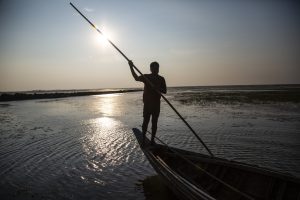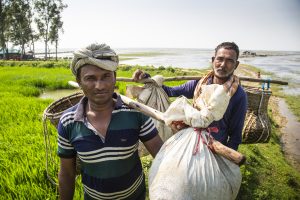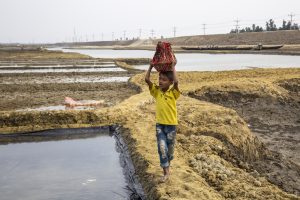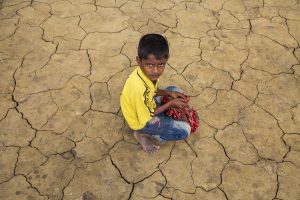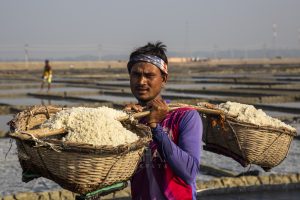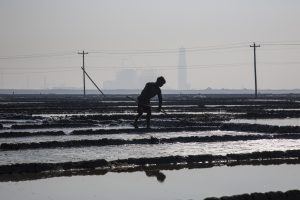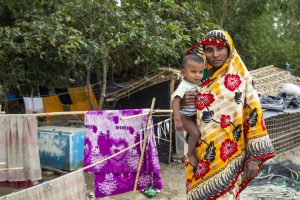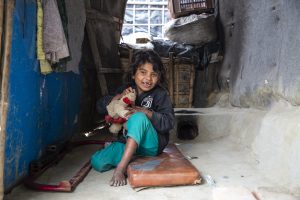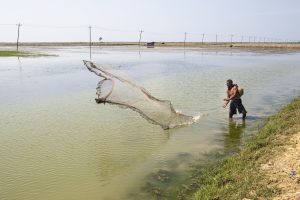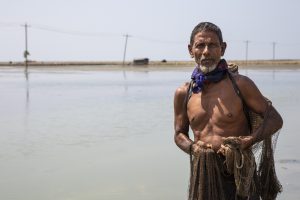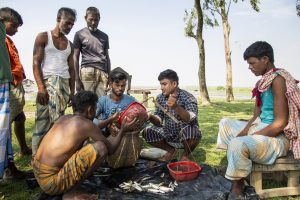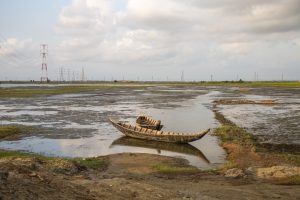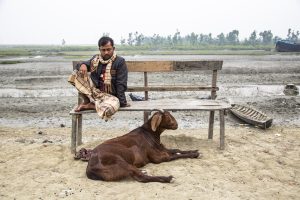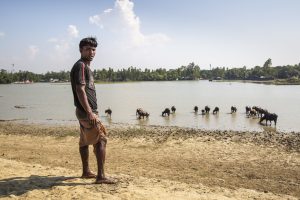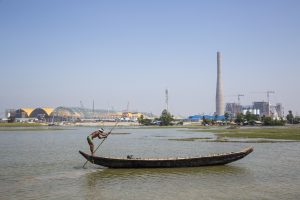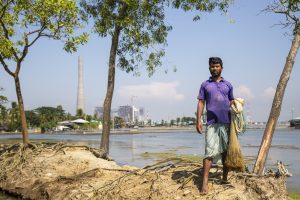Massive Liquified Natural Gas (LNG) power plants and terminals are being built on a remote island in the Chattogram coastal region of southeastern Bangladesh. Despite soaring costs of importing gas, major Japanese and U.S. companies such as General Electric, Mitsui and JERA are pushing ahead with expansion plans.
Bangladeshis living in the area say these fossil fuel projects are compounding climate-fueled devastation faced by hundreds of thousands of people, including families of fisher folk and farmers, who have lost their livelihoods due to the construction of a huge coal power plant.
More than 70,000 farmers in the Cox’s Bazar region of southeastern Bangladesh produce around 95 percent of the country’s salt. Each day in peak seasons, more than 10,000 metric tons of salt is produced on average. Fisher folk say it’s harder to make a living to feed their families as the harsher climate is fueling more intense cyclones and rising sea levels.
Rohima Begum worries night and day about providing a better future for her children after relocating her family twice in as many years due to erosion caused by a coal power station and a massive cyclone.
Tens of thousands of people migrate to major cities each month to escape frequent flooding and more severe tropical storms. Local and international environment groups are raising concerns as construction of coal and gas power plants and other infrastructure, including LNG terminals, is going full steam ahead, locking Bangladesh into decades of producing harmful carbon emissions.













